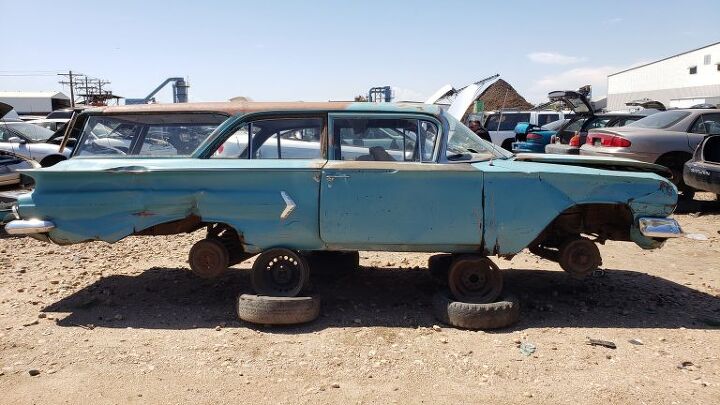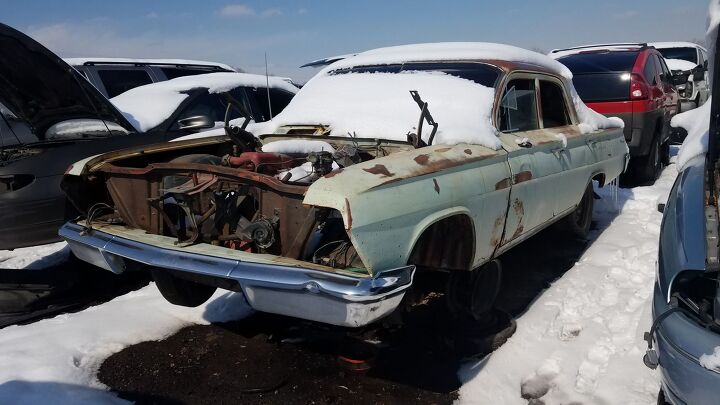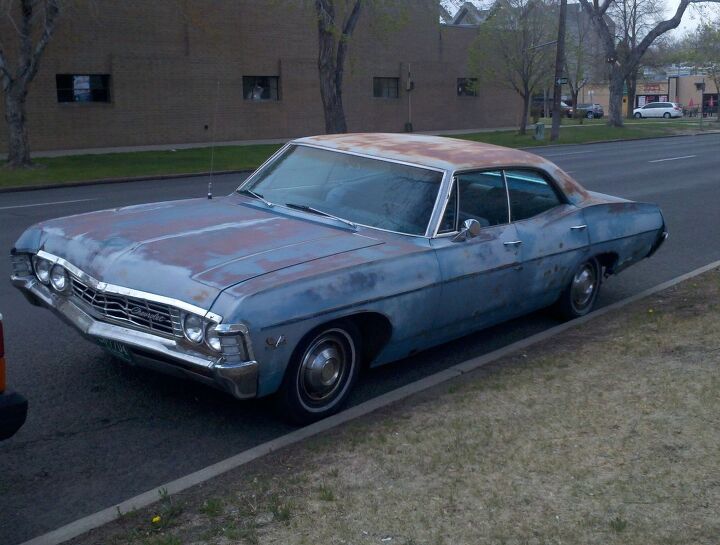#ChevroletBiscayne
Junkyard Find: 1960 Chevrolet Brookwood Two-door Wagon
Once the original 1955-1957 Chevy Nomad two-door wagon became a sacred icon among those who prize Detroit machinery of the Eisenhower Era, all GM two-door wagons attained a certain prestige among those who enjoy cruise nights, car shows, Time Out dolls, and the 119,544th repetition of Hot Rod Lincoln (no, not the gloriously hillbilly original 1955 Charlie Ryan version, the still-excellent-but-now-overplayed 1971 Commander Cody version, which incorrectly refers to the souped-up Lincoln motor as a V8). I would have thought that a genuine two-door 1960 Biscayne wagon ought to have found someone willing to keep it on the street, but this car in a northeastern Colorado yard proves me wrong.
Read more
Junkyard Find: 1962 Chevrolet Biscayne Sedan
During the early-to-mid 1960s, the king of the full-sized Chevrolet world was the loaded Impala. The Bel Air wasn’t quite as luxurious, but still had a decent amount of swank. For the bargain-conscious car shopper who wanted a bare-bones full-size sedan without a lot of costly gingerbread, the Chevy Biscayne was an excellent choice.
Here’s a ’62 that outlived most of the Impalas and Bel Airs, now ending its 56-year journey in a Denver self-service wrecking yard.
Down On The Mile High Street: 1967 Chevrolet Impala
With all the relatively solid big Detroit cars from the 1960s getting eaten by The Crusher in these days of $4/gallon gasoline and $250/ton scrap steel prices, how does a rough survivor like this sedan manage to stay out of the Chinese steel foundries?


















Recent Comments